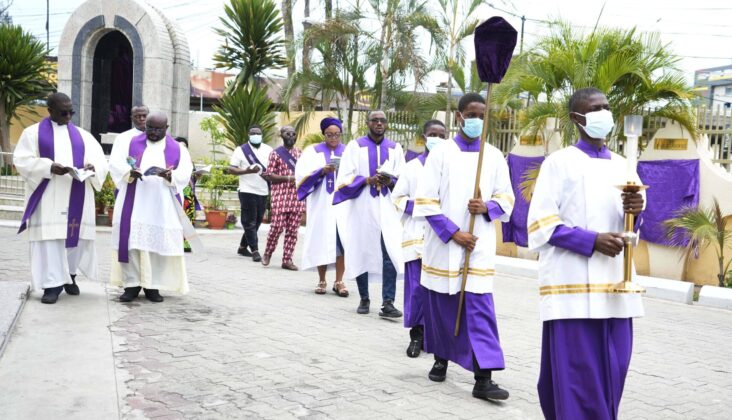[ad_1]
Data collected by the nonprofit Armed Conflict Location and Event Data Project (ACLED) in Washington shows 23 separate attacks on Nigerian churches and/or Christian leaders in the first half of this year.
That’s up from 31 for all of last year and 18 in 2020.
The clear increase in targeted violence against the Christian community in Nigeria since 2019 coincides with a rise in attacks against civilians in general. From 2020 to 2021, the total number of reported such incidents increased by 20%.
Are Christians the predominant target?
This year, there has been a rise in attacks against churches and Catholic and Protestant leaders. Recent violence includes:
- The high-profile kidnapping of a Methodist church leader in southeastern Abia State;
- Abductions of Catholic priests in President Muhammadu Buhari’s native northwestern Katsina State;
- The beating death of Christian student Deborah Samuel by Muslims accusing her of blasphemy; and
- The ‘Owo Church Massacre’ in which dozens of Christians attending Pentecost mass were killed in early June in southwestern Ondo State.
The situation has led many Nigerians to believe that their religious group is under attack.
“It is becoming a hopeless situation and is reprehensible,” said Adebayo Oladeji, a spokesman for the Christian Association of Nigeria (CAN).
Christians make up roughly 50% of the country’s population. Despite the attacks on the community, religiously motivated violence accounts for only five per cent of reported civilian attacks (although many attacks are not recorded or reported).
ACLED reports that a higher rate of political violence targets groups based on gender, ethnicity, profession and government affiliation. According to the group, women and political figures are most often kidnapped.
Where are Christians in the most danger?
In Kaduna state, militia violence is rampant and fighting between armed groups disproportionately affects vulnerable populations, including the Christian minority.
Northeastern Borno State has the second-highest number of reported violent attacks against Christians, although fighting in this state has been in general decline since 2020.
Meanwhile the terrorist group Boko Haram has, for the best part of the past two decades, concentrated its insurgencies in the northeast, particularly in Borno. However, ACLED data shows that operations are expanding and approaching the capital, Abuja.
Contrary to popular belief, Boko Haram does not just target Christians. The group’s very name, which translates to Western education is forbidden, reveals that it targets anyone, Muslim or Christian, who Boko Haram believes is being corrupted and is corrupting their children with Western beliefs.
Schools educating Muslim girls in particular are frequently attacked by extremists. Leading Muslim voices have joined Christian and political leaders to condemn the violence.
Understand Africa’s tomorrow… today
We believe that Africa is poorly represented, and badly under-estimated. Beyond the vast opportunity manifest in African markets, we highlight people who make a difference; leaders turning the tide, youth driving change, and an indefatigable business community. That is what we believe will change the continent, and that is what we report on. With hard-hitting investigations, innovative analysis and deep dives into countries and sectors, The Africa Report delivers the insight you need.
[ad_2]
Source link
